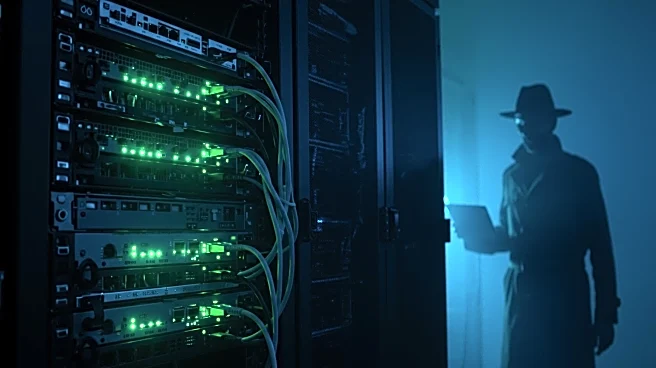What is the story about?
What's Happening?
A Russian state-sponsored cyber espionage group known as Static Tundra is actively exploiting a seven-year-old vulnerability in Cisco network devices. This flaw, identified as CVE-2018-0171, affects the Smart Install feature of Cisco IOS and IOS XE software. Despite the availability of a patch since 2018, many devices remain unpatched, particularly those that have reached their end-of-life. The FBI and Cisco Talos have issued warnings about the ongoing campaign, urging users to apply the patch or disable Smart Install. Static Tundra has been observed collecting configuration files from thousands of networking devices associated with U.S. entities across critical infrastructure sectors. The group targets organizations in telecommunications, higher education, and manufacturing sectors globally, with a focus on strategic interests to the Russian government.
Why It's Important?
The exploitation of this vulnerability by Static Tundra poses significant risks to U.S. critical infrastructure. By targeting network devices, the group can potentially disrupt services and gather sensitive information, which could be leveraged for future operations. This activity underscores the importance of cybersecurity vigilance, particularly in sectors that are vital to national security and economic stability. Organizations that fail to patch or secure their devices may face operational disruptions and data breaches, impacting their ability to function effectively. The ongoing threat from Static Tundra highlights the need for robust cybersecurity measures and international cooperation to mitigate risks posed by state-sponsored cyber activities.
What's Next?
Organizations are advised to prioritize patching vulnerable devices and disabling Smart Install to prevent exploitation. The FBI and Cisco Talos will likely continue monitoring Static Tundra's activities and issue further advisories as needed. As the group remains active, affected sectors may need to enhance their cybersecurity protocols and invest in threat intelligence to anticipate and counteract potential attacks. Additionally, diplomatic efforts may be necessary to address the broader implications of state-sponsored cyber espionage and to establish norms for cyber conduct.
Beyond the Headlines
The persistent threat from Static Tundra raises ethical and legal questions about state-sponsored cyber activities. It challenges international norms and highlights the need for a global framework to address cyber espionage. The exploitation of legacy vulnerabilities also points to the importance of maintaining up-to-date cybersecurity practices and the potential consequences of neglecting software updates. As cyber threats evolve, organizations must adapt their strategies to protect against increasingly sophisticated attacks.
















